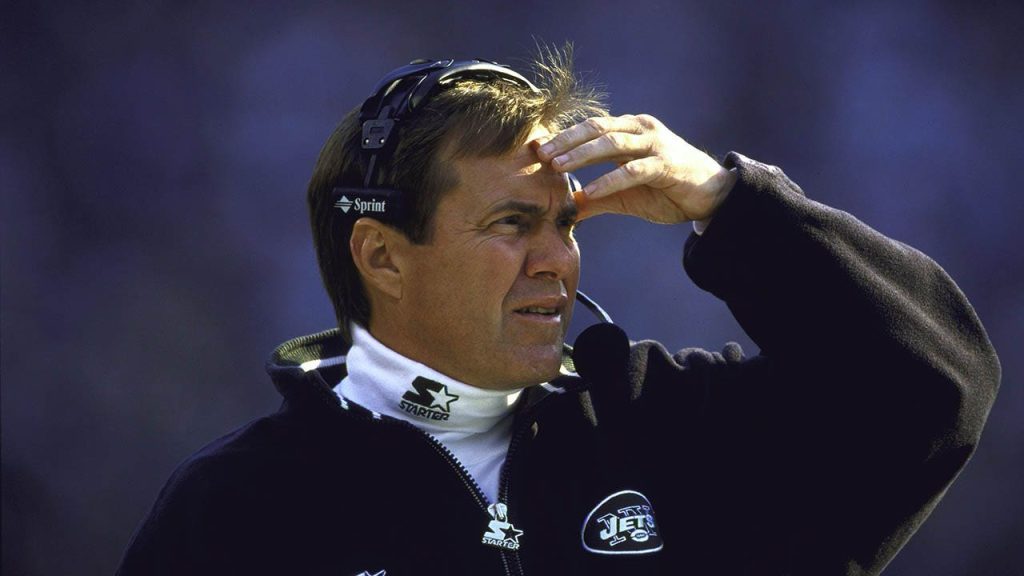The surprising revelation that Bill Belichick, now the head coach at the University of North Carolina, briefly considered a return to the NFL and, more remarkably, to the New York Jets, adds another layer to an already complex and intriguing saga. This near-reunion, which almost transpired just weeks before Belichick took the helm at UNC, revisits a pivotal moment in NFL history: Belichick’s infamous resignation from the Jets in 2000. The story, as reported by The Athletic, involves informal conversations between Belichick’s “inner circle” and several NFL teams, including the Jets, after the team’s early-season struggles and subsequent firing of head coach Robert Saleh. While no formal discussions took place, the mere possibility of Belichick returning to the team he so dramatically spurned over two decades ago sparks renewed interest in the motivations behind his initial departure and the potential ramifications of a hypothetical reunion.
Belichick’s original resignation from the Jets remains one of the most memorable moments in NFL history. Poised to take over as head coach after serving as Bill Parcells’ assistant, Belichick stunned the sporting world by scribbling his resignation on a napkin during his introductory press conference. He cited concerns about the team’s ownership under Woody Johnson as the primary reason for his abrupt departure. This decision, while shocking at the time, proved to be a turning point in the fortunes of both the Jets and the New England Patriots. Belichick quickly landed in New England and, with Tom Brady, built a dynasty that tormented the Jets and the rest of the league for years. The Jets, meanwhile, have struggled to find consistent success, cycling through coaches and quarterbacks while remaining in the Patriots’ shadow.
The reported interest from both Belichick and the Jets in a potential reunion raises several intriguing questions. For the Jets, the appeal is obvious: Belichick is arguably the greatest coach in NFL history, and his presence would instantly transform the team’s prospects. It would also represent a chance for redemption after the humiliation of 2000. For Belichick, the motivation is less clear. He has stated emphatically that he is committed to UNC and has no intention of returning to the NFL. However, the allure of returning to the league, especially to the team he once spurned, might have been difficult to resist, especially given the Jets’ coaching vacancy. The informal nature of the contact suggests a level of exploration, a gauging of interest on both sides before any serious commitment was considered.
The timing of this near-reunion is also significant. The Jets, struggling mightily after a promising start, fired head coach Robert Saleh, creating a high-profile opening. Belichick, meanwhile, was on the cusp of taking the UNC job, a surprising move for a coach with his NFL pedigree. The convergence of these events created a window of opportunity, however brief, for a reunion that would have reshaped the NFL landscape. The fact that it didn’t happen, with Belichick ultimately choosing the college route, leaves a tantalizing “what if” scenario that will undoubtedly fuel speculation for years to come.
The specter of Woody Johnson’s ownership also looms large in this narrative. Belichick’s initial departure was largely attributed to his reservations about Johnson, who remains the team’s owner. This raises questions about whether Belichick would have been willing to work under Johnson again, even with the potential for greater control over football operations. Johnson’s political involvement, serving as ambassador to the United Kingdom under President Trump, might have further complicated matters, given Belichick’s previously expressed political views. The lack of formal discussions suggests that these concerns may have played a role in preventing a serious pursuit of a reunion.
Ultimately, Belichick chose the collegiate path, taking the reins at UNC. This decision, while surprising to some, allows him to build a new program from the ground up, free from the intense pressure and scrutiny of the NFL. His declaration that he “didn’t come here to leave” underscores his commitment to UNC and seemingly puts to rest any further speculation about a return to the NFL, at least for the foreseeable future. However, the brief flirtation with the Jets serves as a reminder of the complex and often unpredictable nature of professional sports and leaves fans wondering what might have been. The story adds another chapter to the already rich history between Belichick and the Jets, a history marked by both disappointment and enduring fascination.

